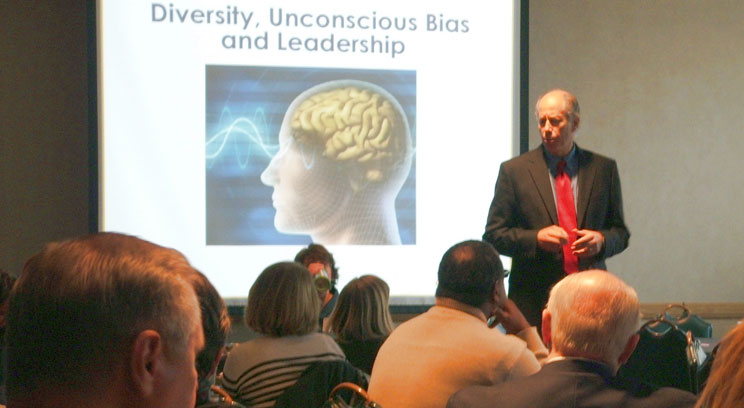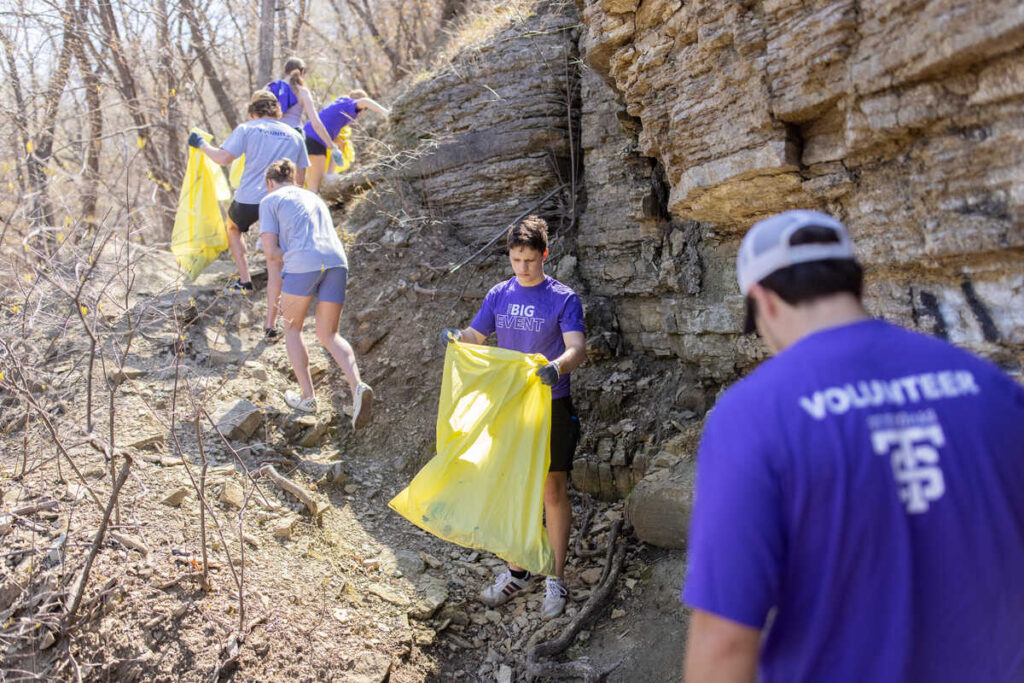In any given week St. Thomas offers a wide range of workshops to members of its community. Still there were many aspects of the Howard Ross workshop on Diversity, Unconscious Bias, and Leadership that set it apart.
The intention of this workshop was simple yet provocative. Even with the purest of intentions, the way we perceive and respond to the world is strongly influenced by factors that we are often completely unaware of. These influences are grounded in our personal history as well as our biology. And some of these unconscious influences on our perceptions and responses can detract from our effectiveness in interacting with others.

Ross used a combination of video clips, research results, and personal stories to de-stigmatize our perceptions of bias, a critical first step in understanding how pervasive and universal bias is, and how we can use a heightened awareness of our own biases to increase our effectiveness in interacting with others. Visual aids, like the images above, helped illustrate not only that our initial perceptions can misled us, but that even after seeing visual proof, in this case, proof that square A and square B are the same shade of gray our senses, shaped by our “bias” about the nature of checkerboard patterns, tell us something different.
This insight into the workings of our own minds, this understanding of how context and life experience shapes our perception of reality, becomes more important when we shift our attention from inanimate objects and colors to complex communities of individuals that we li
ve, learn and work with. And as our communities become increasingly diverse, and the contextual and social meaning of dimensions of difference, such as gender, race, and sexual orientation evolve, enhancing our self-awareness of how personal history and cultural norms informs our perceptions becomes more critical.
How does this relate to leadership?
And so, over the course of three workshops over 100 members of the St. Thomas community received a crash course on diversity, inclusion, and the nature of unconscious bias. This comment from an attendee captured the sentiments expressed by several participants – “Great session! Would love more opportunities to discuss these ideas with colleagues.” And the most common complaint? That the workshops were too short! Great leaders connect emotionally, and inspire the best from their team members with effective communication and aggressive but realistic goals. If we are charged with leading or participating in a diverse team (and what team isn’t these days?) understanding how our life experience and world view may differ from our colleagues, or influence how we interact with others, is incredibly valuable.
Bill Woodson, is assistant dean for community outreach in the Opus College of Business .If you are interested in exploring the themes of unconscious bias and creating a more inclusive environment in our diverse St. Thomas community, send your name and suggestions to bwoodson@stthomas.edu.







